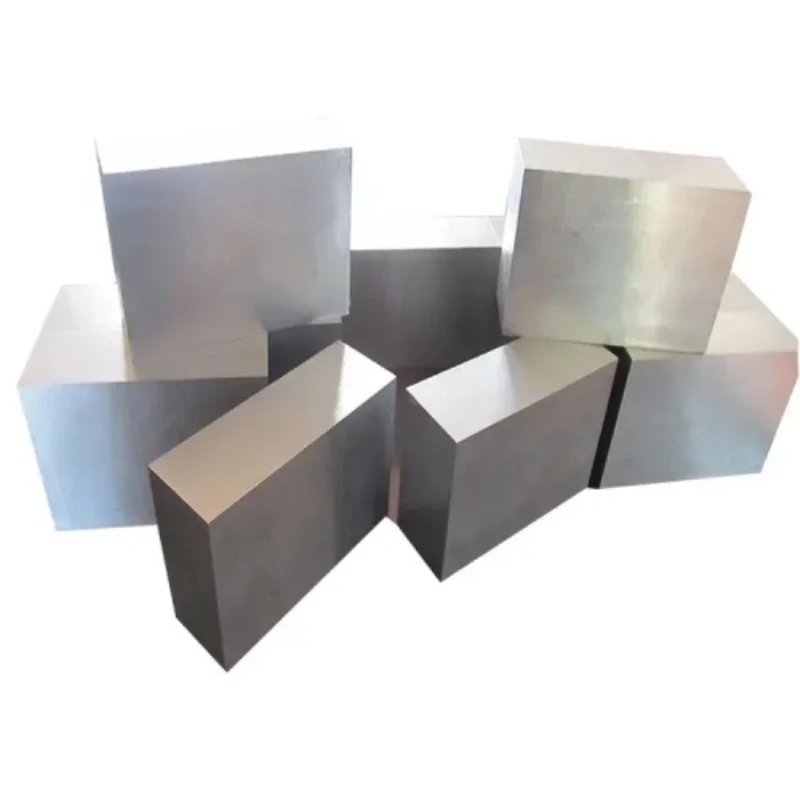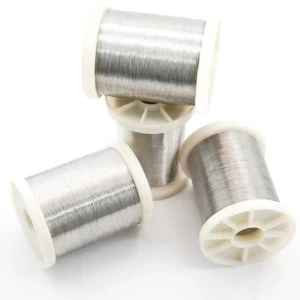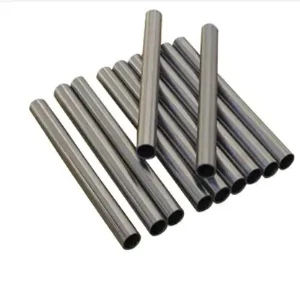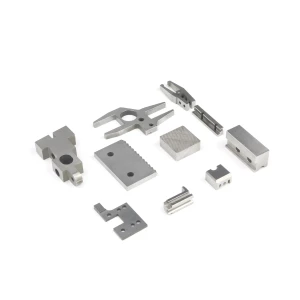Zirconium Forgings are metal parts made of zirconium alloy as the main material and processed by forging technology. The following are some detailed information about zirconium forgings:
Performance characteristics:
Excellent corrosion resistance: Zirconium alloy contains a high concentration of zirconium elements, which can effectively resist oxidation, acidic and alkaline environments, and can remain stable in various harsh corrosive media. It is suitable for chemical industry, nuclear power and other fields with extremely high requirements for corrosion resistance.
Good high temperature stability: It can still maintain good mechanical properties and structural stability at high temperatures, can withstand high temperatures and thermal stresses, and is often used in high temperature working environments, such as aerospace engine components, nuclear reactor structures, etc.
Excellent mechanical properties: Plastic deformation during forging gives zirconium forgings a higher density and lower porosity, thus having higher strength, hardness and toughness, and its impact toughness is also excellent, able to withstand large impact forces and vibration loads.
Application fields:
Aerospace field: Aerospace technology has strict requirements on the performance of materials. Zirconium forgings can be used in key components of aircraft engines, such as blades, turbine disks, etc., due to their high strength, low density, good corrosion resistance and high temperature oxidation resistance. They can improve the performance and reliability of the engine; they can also be used in the manufacture of spacecraft such as rockets and missiles, such as rocket engine components, guide rails, fixings, etc., which can improve the performance and life of spacecraft.
Nuclear industry field: In nuclear reactors, zirconium forgings are widely used as structural materials and fuel assemblies of nuclear reactors. Their good radiation resistance and chemical stability can effectively resist corrosion and stress corrosion cracking in the nuclear reactor environment, ensuring the safe operation of nuclear power equipment.
Chemical industry: Common applications include reactors, heat exchangers, storage tanks, pipelines and other equipment. Their excellent corrosion resistance can protect equipment from corrosion and ensure the safe operation of chemical processes.
Biomedical field: Zirconium forgings have similar density and biocompatibility to human tissues. They are widely used in medical devices such as artificial joints, dental implants and bone repair materials, and can provide reliable support and repair effects.
Energy field: It can be used in nuclear power equipment, and also in petrochemical equipment, such as oil storage tanks, oil refining equipment, etc. Its corrosion resistance and high strength can adapt to the high temperature and high pressure environment of energy equipment and withstand complex mechanical loads.
Chemical Composition Of Zirconium
| R60702 | Zr+Hf≥99.2 | Hf≤4.5 | Fe+Cr≤0.2 | C≤0.05 | N≤0.025 | H≤0.005 | O≤0.16 | / |
| R60704 | Zr+Hf≥97.5 | Hf≤4.5 | Fe+Cr≤0.2-0.4 | N≤0.05 | H≤0.005 | Tin1.0-2.0 | Nb0.18 | / |
| R60705 | Zr+Hf≥95.5 | Hf≤4.5 | Fe+Cr≤0.2 | C≤0.05 | N≤0.025 | H≤0.005 | O≤0.18 | Nb2.0-3.0 |
| Mechanical Properties | ||||
| Material | State | Rm (≥)/MPa | Rp0.2 (≥)/MPa | A50mm (≥)/% |
| Zirconium 702 | Annealed | 379 | 207 | 16 |
| (UNS R60702) | ||||
| Zirconium 704 | Annealed | 413 | 241 | 14 |
| (UNS R60704) | ||||
| Zirconium 705 | Annealed | 552 | 379 | 16 |
Manufacturing process:
Preparation before forging: First, choose the appropriate zirconium alloy material to ensure that its composition and quality meet the requirements. Then heat the zirconium alloy billet. The heating temperature and holding time need to be determined according to the specific material and process requirements. Generally, the heating temperature is high to ensure that the material has good plasticity.
Forging process: Different forging equipment and process methods, such as free forging, die forging, etc., are used to plastically deform the heated billet to achieve the required shape and size. During the forging process, it is necessary to control the deformation amount, deformation speed and forging temperature and other parameters to ensure the quality of the forging.
Post-forging treatment: including heat treatment, machining, surface treatment and other processes. Heat treatment can improve the organizational structure and performance of forgings, machining can make the size and surface accuracy of forgings meet the design requirements, and surface treatment can improve the corrosion resistance and wear resistance of forgings.
Quality control:
Material testing: Chemical composition analysis, metallographic structure testing, mechanical property testing, etc. of raw materials are carried out to ensure that the quality of the materials meets the standard requirements.
Process monitoring: During the forging process, real-time monitoring of forging temperature, deformation, forging force and other parameters are carried out, and process parameters are adjusted in time to ensure the stability and consistency of the forging process.
Finished product inspection: The finished zirconium forgings are inspected for appearance, dimension measurement, non-destructive testing, mechanical property testing, etc. to ensure that the quality of the forgings meets the design requirements and relevant standards.
With Zhuohangxin Metal's extensive processing capabilities, we can produce a wide range of R60702, R60704, R60705 zirconium forgings to your exact dimensions. Zhuohangxin Metal has a wide variety of processing equipment that is impeccably maintained to ensure 100% satisfaction. We offer many value-added services to meet the specific needs of your project.
We have more categories for you. lf you can't find the products you want above,just fill in the form and tell us whatproducts you want to import from China.

















